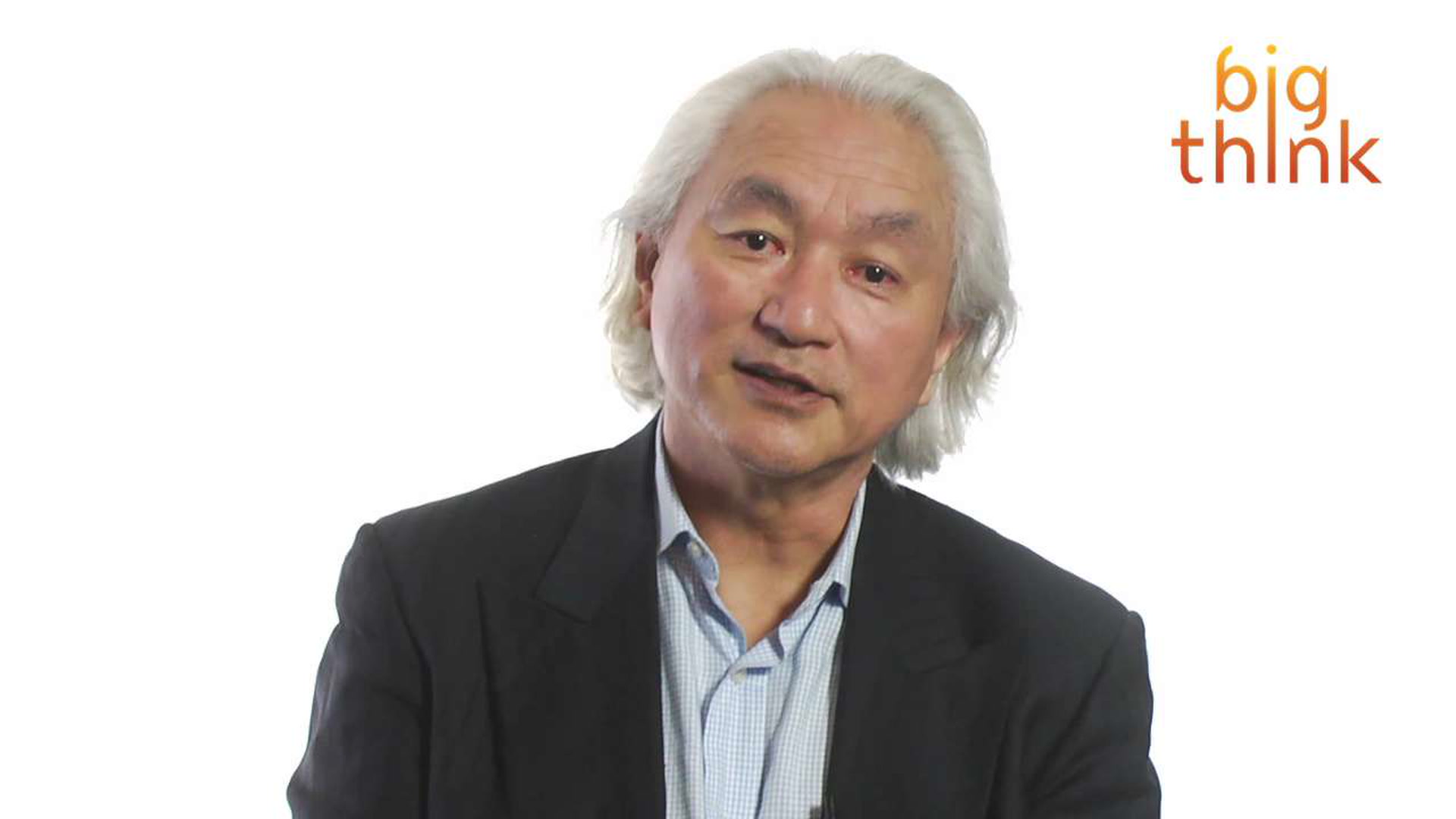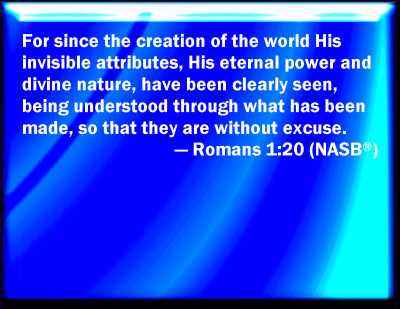
Posted on 03/01/2019 9:44:51 AM PST by SeekAndFind
Co-founder of string field theory and physicist Michio Kaku made waves last year — or at least seemed to — when it was reported that he’d proven the existence of God. The Geophilosophical Association of Anthropological and Cultural Studies quoted Kaku as saying, "I have concluded that we are in a world made by rules created by an intelligence. To me, it is clear that we exist in a plan which is governed by rules that were created, shaped by a universal intelligence and not by chance."
Reacting to that public comment, Kaku said: "That’s one of the drawbacks of being in a public sphere: Sometimes you get quoted incorrectly. My own point of view is that you can neither prove nor disprove the existence of God."
"Science is based on what is testable, reproducible, and falsifiable," Kaku says. "That’s called 'science.' However, there are certain things that are not testable, not reproducible, and not falsifiable. And that would include the existence of God." He's noted that discerning whether you live in a Matrix-style construct or not would be another such 'non-falsifiable' problem.
Part of the problem, of course, is that "God" has different meanings to different people, and in discussing It/Him/Her, there’s apt to be confusion. And yet believers continue to ask scientists this question, perhaps seeking scientific confirmation for their faith. They want to know if Kaku’s an atheist, but when we can’t agree on what God is, “atheist” has even less meaning.
In any event, when asked about God, Kaku is likely to quote Einstein’s suggestion that there are two types of god: “One god is a personal god, the god that you pray to, the god that smites the Philistines, the god that walks on water. That’s the first god. But there’s another god, and that’s the god of Spinoza. That’s the god of beauty, harmony, simplicity.”
It’s that second “God” to which Kaku is drawn. He tells innovation tech today that the universe could have been random, but that instead “Our universe is rich; it is beautiful, elegant.”
He’s stuck by what he sees as its exquisite simplicity, pointing out that all of the laws of physics could fit on a single sheet of paper, and, “In fact, what I do for a living is to try to get that sheet of paper and summarize it into an equation one inch long.” He asserts that with his string field theory, he had that one-inch explanation of everything, but that with new developments in membrane theory, he needs a little more room. For now.
Still, Kaku says, this will happen. Physics is the opposite of most other fields of study, he says: With every new advance it gets simpler, and in that lies his sense of wonder. “So, that’s the God of Einstein. The God of beauty, [the idea] that says that the universe is simpler the more we study it.”
Kaku recounts:
"When scientists use the word God, they usually mean the God of Order. For example, one of the most important revelations in Einstein’s early childhood took place when he read his first books on science. He immediately realized that most of what he had been taught about religion could not possibly be true. Throughout his career, however, he clung to the belief that a mysterious, divine Order existed in the universe."
That other kind of God clearly has less appeal for Kaku, as it generally does for physicists and other scientists, including Neil DeGrasse Tyson, who says that believers he talks to tell him that God is all-powerful and good, but when he looks at ”all the ways Earth wants to kill us,” he just doesn’t see how both could be true.
So when Kaku asserts that the goal of string field theory is to “read the mind of God,” it’s important to remember he’s talking about Einstein’s God of Order. To “read the mind of God” would be to find that (one-inch) equation that explains everything in the cosmos. Bearing in mind the continual game of leapfrog going on between math and physics, and that the latest leap is physics' string theory, which requires a new type of math, Kaku mischievously suggests that the ultimate solution to the schism between physicists and mathematicians could be that God is a mathematician. And, he says, the mind of God — the explanation of Order — may turn out to be string field theory’s “cosmic music,” the resonating of strings through 11-dimensional hyperspace.

--
Thats some little dance he’s doing there.

He seems to me to be the science equivalent of Alexandria Ocasio-Cortez.
Bookmarked
How so? He laid out his position quite clearly.

There's no such thing as an atheist.
Anyone who says so - are in conscious or unconscious denial.
We Christians get all excited over the reasoned arguments for Intelligent Design. We should curb our enthusiasm a bit, for proof of the existence of an Intelligent Designer does not also demonstrate the existence of the God of our Hebrew Bible.
Our Christian and Hebrew God did much more than design the universe intelligently. He spoke to Abraham, chose the Jews, made the sun stop one afternoon, played games with Pharoah, let Satan toy with Job, sent Jesus to earth, and so on. Intelligent Design touches none of these particular and fundamental things.

(they) are...
(anyone) is....
LOL


Exactly the opposite. Third generation Japanese American and not a leftist puke like most of the TV scientists. Great books and lectures, good mind and honest as to what he does not know.
I have a couple of scientists in my family, they all like him.
It's a theoretical utopia that you either believe in or you don't. Like "socialism will work when the right people implement it."
“My own point of view is that you can neither prove nor disprove the existence of God.”
Can’t really argue with that point. It’s interesting though in itself that that should be the case.
I've a couple of scientists in my family too, and they ignore him.
As per Wikipedia:
As part of the research program in 1975 and 1977 at the department of physics at The City College of The City University of New York, Kaku worked on research on quantum mechanics. He was a Visitor and Member (1973 and 1990) at the Institute for Advanced Study in Princeton and New York University. He currently holds the Henry Semat Chair and Professorship in theoretical physics at the City College of New York.
Kaku has had more than 70 articles published in physics journals such as Physical Review, covering topics such as superstring theory, supergravity, supersymmetry, and hadronic physics. In 1974, Kaku and Prof. Keiji Kikkawa of Osaka University co-authored the first papers describing string theory in a field form.
Kaku is the author of several textbooks on string theory and quantum field theory.
I’d say this certainly qualifies him to be called a “real” scientist… Wouldn’t you agree?
He says its clear god exists, a universal intelligence. Then he says you cant prove or disprove god. If its clear because of the rules and harmony a universal intellgence (his way of saying god) exists, then his later equivocation is wrong. He bases his conclusion god exists on evidence of rules and laws and harmony, then says cant prove or,disprove. His own belief is evidence based, so hes proved it.
Hes trying to backtrack.
My Kaku translation: My science tells me God undeniably exists, but my reputation in my science clique says I can't say what I see with my own eyes.
God of Order? Is that the best he's got? I'm not religious enough to be an atheist.
Disclaimer: Opinions posted on Free Republic are those of the individual posters and do not necessarily represent the opinion of Free Republic or its management. All materials posted herein are protected by copyright law and the exemption for fair use of copyrighted works.